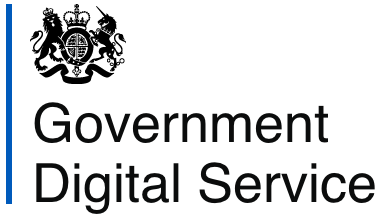Is Oliver Dowden the right man for GDS? No idea and who cares?!
Written by Eleanor WillockSo, movement is afoot in the Government Digital Services (GDS) with the announcement that Junior Minister and MP for Hertsmere, Oliver Dowden, is now in charge of GDS. A little less than eight weeks ago, Ann Kempster, a well-respected government contractor who has worked across multiple departments in Whitehall for the last ten years warned: “I’m seeing the slow dismantling of GDS.” Anne’s stark warning is the result of, in her view, the Government being “ruled by a cadre of senior civil servants and politicians who don’t understand technology.”
Once the darling of the early Conservative government, GDS has no doubt fallen from grace over the last few years. Many commentators have accused it of being rudderless, compounded by a series of sackings, resignations and individuals with little understanding of the role of technology in helping the Government and its sectors to transform.
Francis Maude, Liam Maxwell, John Manzoni, Stephen Foreshew-Cain, Kevin Cunnington, Mike Bracken – are there others? – have all had some sort of role in GDS since it was established in 2011. That is six individuals in little more than 6 years since GDS was created – hardly the best platform for consistency, or enabling those individuals to effect lasting, positive change.
But, if you are a supplier to the Government, is there much value in decrying who is actually at the helm of GDS? Probably not! Granted, it might dictate how much effort you put towards winning public sector business in the face of uncertainty, clarity and direction, but you know yourselves that the public sector is not really something that you dip your toe in. Once you are in, you are in.
Let’s not lose sight of what has actually been achieved by this Government. The online Digital Marketplace, the directory for IT suppliers, now includes over 2,500 firms – 88 per cent of these are SMBs. G-Cloud – perhaps CCS’ most famous procurement framework – was updated in May 2017 and now includes 2,847 suppliers, again, the majority are SMEs.
The Government has created an environment that’s good for Government. It now has thousands of suppliers to choose from – all willing to work on short-term, 2-year contracts. Innovation and fresh thinking is surging through. Government got what it wanted.
What you have in return is competition, and lots of it. And, you have the scenario whereby Government procurers still like to buy from firms they know. There are very few risk-takers in public sector – taking a punt on an unknown name is a risk few are willing to take [see paragraph two about politically motivated decisions!].
Here’s my advice. Don’t sit and wait for contracts to come to you, it will be a long wait. Don’t bash the competition publicly either – although a working knowledge of what they do is useful – but instead focus on yourself and on your own business.
You need to focus on your own profile – i.e. better company awareness. This doesn’t happen over-night, so a concerted, continuous effort to build this is needed. Second, you need a reputation that is built on the communication of success; customer references and proving where you have worked before is essential. You need to be able to turn your public sector customers into advocates for your IT products and services. And, lastly, you need to demonstrate knowledge and expertise in the project you’re trying to win.
Not every business is going to win a Govtech contract in 2018, but those with the best profile and reputations, and those which demonstrate experience, knowledge and expertise will be in with a great chance.
I have no idea if Oliver Dowden is going to have a positive impact at GDS. But what I do know is Government will continue to need the supplier community – especially SMEs. Suppliers just need to make sure they are best placed to capitalise on the Government’s ongoing need for innovation and new ways of working.



